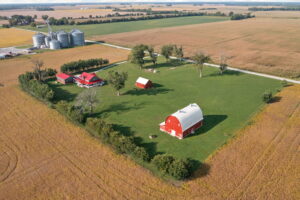 Selling the family farm is often an emotional and challenging decision for many families. However, with careful preparation and clear expectations, the process can be less stressful. This guide will help you understand the necessary steps to sell your farm smoothly.
Selling the family farm is often an emotional and challenging decision for many families. However, with careful preparation and clear expectations, the process can be less stressful. This guide will help you understand the necessary steps to sell your farm smoothly.
1. The Family Meeting: Getting Everyone on the Same Page
To start, gathering everyone with an interest in the farm is crucial. Often, family members may have different opinions about whether selling the farm is the best option. Therefore, it’s helpful to organize a family meeting to discuss the decision together. This gives everyone a chance to voice their concerns and ultimately come to a shared agreement.
Tip: Reading this article before your meeting may reduce uncertainties and help clarify potential concerns.
2. Gathering Data: Key Information You Need to Know
Before making any final decisions, you’ll need to gather important information. First, determine who legally owns the farm. Is it in a trust? Do you have the right to sell it? For example, knowing this will help prevent confusion later.
Next, be clear on what you’re selling. Are you selling the entire farm or just part of it? If you plan to sell a portion, you may need to have the land surveyed and divided. By doing this, you’ll have a better understanding of the property’s scope and avoid any misunderstandings.
3. Soliciting Professional Advice: Expert Guidance Can Help
Once you’ve gathered your data, it’s time to seek professional advice. For instance, a real estate agent or appraiser with experience in farm sales can help you understand the value of your property. They can provide insights into the current market trends, which can fluctuate quickly based on demand.
4. Maximizing Your Farm’s Value: Getting the Best Price Possible
To ensure you get the best price for your farm, consider working with a professional real estate agent. An experienced agent will bring valuable knowledge and resources to the table. Here’s how they can help:
- First, they’ll assess the market value of your farm.
- Second, they’ll gather essential information about your property, like soil types, acreage, and irrigation systems.
- Additionally, they may recommend improvements to enhance the farm’s appeal.
By using a real estate professional, you can ensure the farm is marketed to a wide audience, both locally and internationally.
5. Closing the Deal: What Happens After an Offer Is Made
Once you’ve received an offer, your real estate agent will walk you through the process. For example, they’ll help you understand the terms and conditions of the offer. After that, they’ll assist with negotiating the offer terms, title work, surveys, and other required steps before closing.
Next Steps: Learn About 1031 Exchanges
After successfully selling your family farm, it’s important to consider the next steps in managing your proceeds. Learn more about 1031 Exchanges and how they can save you money by deferring taxes on your sale. Furthermore, the IRS offers these real estate tax tips with regards to Like-Kind Exchanges.
